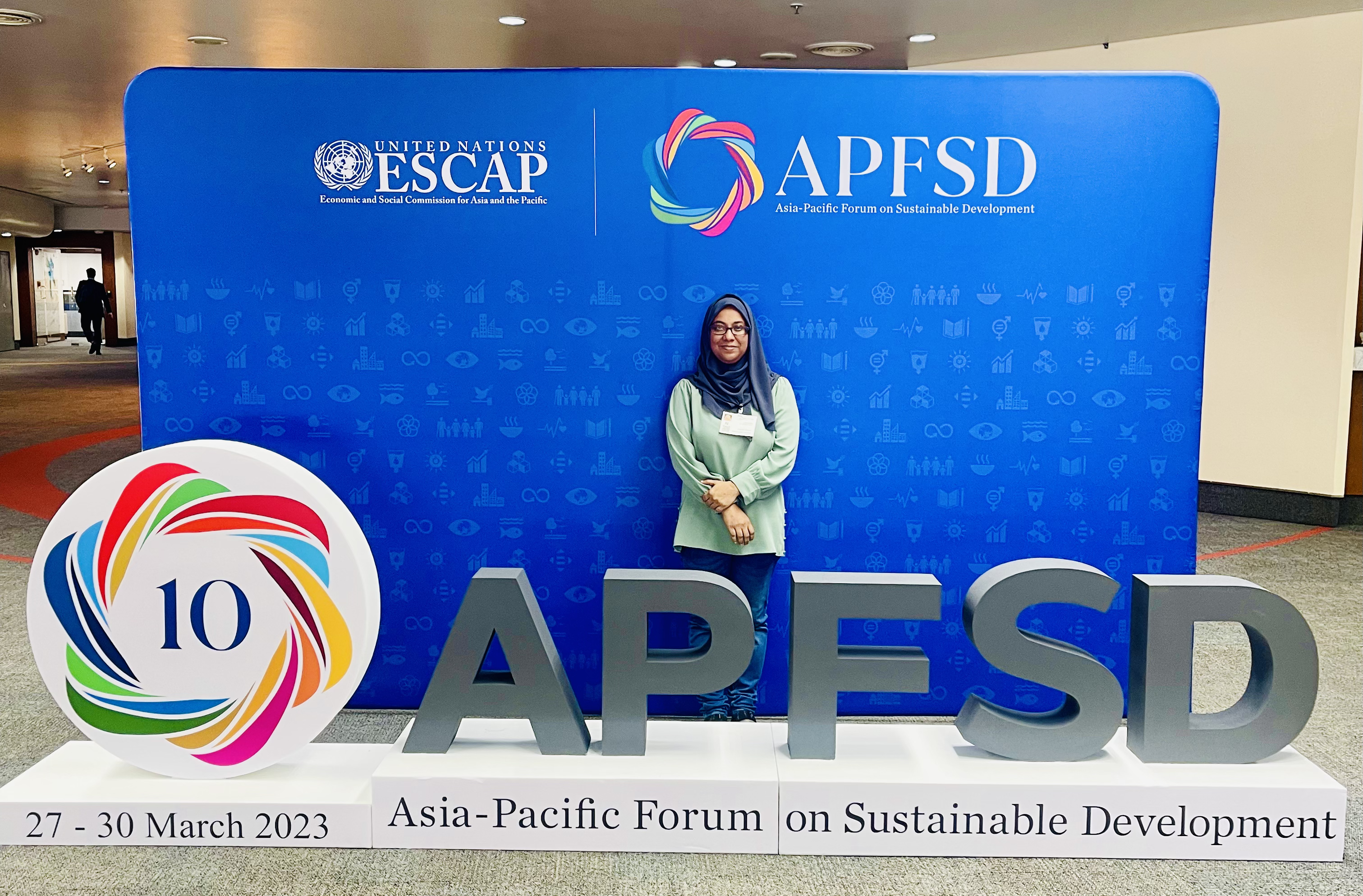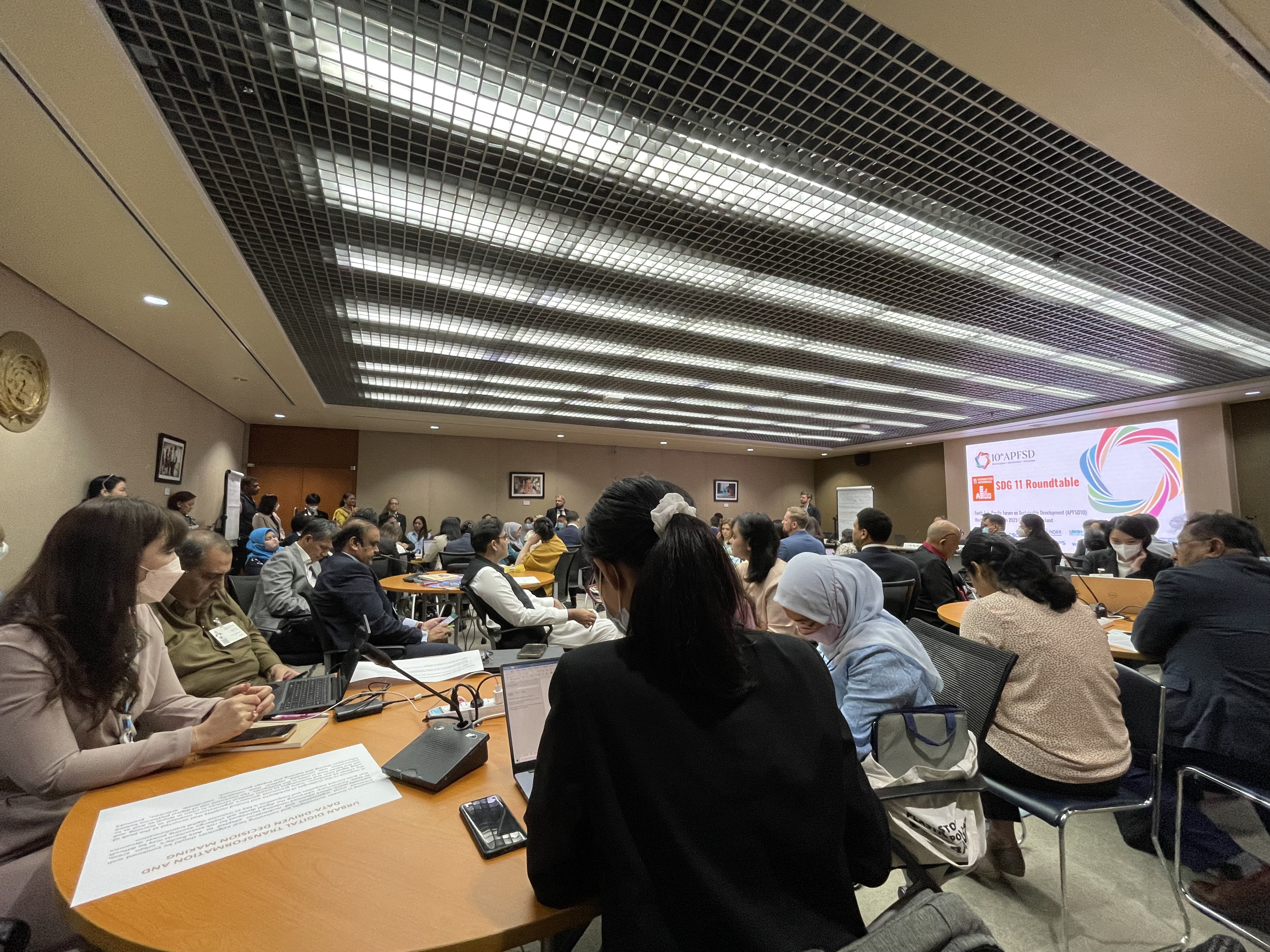Providing a response to the evidence gap: libraries at the Asia-Pacific Forum on Sustainable Development
04 April 2023
Gaps were at the heart of the discussion at the 2023 Asia-Pacific Forum for Sustainable Development in Bangkok, Thailand. These exist both in between the situation today and the goals the United Nations have set for 2030, but also in the data and evidence we have to support progress. IFLA’s representative at the event – Fathimath Nashfa of the Maldives – was about to highlight how libraries can contribute to both.
The Asia-Pacific Forum (27-30 March) was the fourth of the give regional events held in advance of the High Level Political Forum 2023. These provide an opportunity to assess progress at regional level, as well as to share experiences between UN and national officials, as well as experts and civil society organisations.
IFLA was happy to be represented by Fathimath Nashfa of the Maldives National University Library, who attended the meeting in person on behalf of libraries. We are grateful to her for this, and for contributing to this article, and to the Maldives Library Association for their support,

Evidence gaps
A recurring topic throughout the event was that efforts to make progress and identify priorities were made more complex by the lack of available data for monitoring and evaluation. As a result, taking decisions was harder.
This highlights a potential role of libraries already highlighted in the IFLA statement of last year. However, there is still plenty of work to do to make sure that libraries, which are so well placed to do this, are taken into account in this work.
From the government and parliamentary libraries that engage directly with decision-makers to the academic libraries that manage data and support research, and the public and community libraries that enable citizen science and public participation, there is clearly a significant role to play. We need to work to achieve this.
Doing inclusion right
Another strong point of the meeting was its focus on the importance of inclusiveness, and linked to this, of listening to the needs of different communities.
This applied first of all when it comes to policy making, given that policies themselves are better informed and can better seize opportunities if all relevant stakeholders are part of the discussion. This should of course include libraries, given their reach and rich experience. However, our institutions may need to do more to ensure that we are noticed and brought to the table.
However, it is also the case that governments, libraries and others do what they assume is right or needed, without checking whether this is really the case. For example, people with disabilities all too often face barriers, not because of bad will, but because of a failure to think. The answer was to be more open to ongoing conversation, both at the level of libraries and of cities and communities as a whole.

Libraries for sustainable communities
IFLA was able to participate particularly actively in a roundtable discussion focused on SDG 11 – Sustainable Cities and Communities. Joining a group focusing on urban digital transformation and data driven decisions, Nashfa underlined the value of central digitised data repositories, building data literacy skills, having data platforms at a local level, data security and making content accessible.
These points were forwarded to be included in the Roundtable report, and all represent areas where we as librarians can contribute fully as we have knowledge and experience in these areas.
The Asia-Pacific Forum for Sustainable Development therefore provided yet another affirmation of the importance and diversity of the roles that libraries can play in supporting sustainable development. Work is already taking place across IFLA to help our services become more effective and inclusive, and we call on governments to recognise and support this, and ensure that we can fulfil our potential.